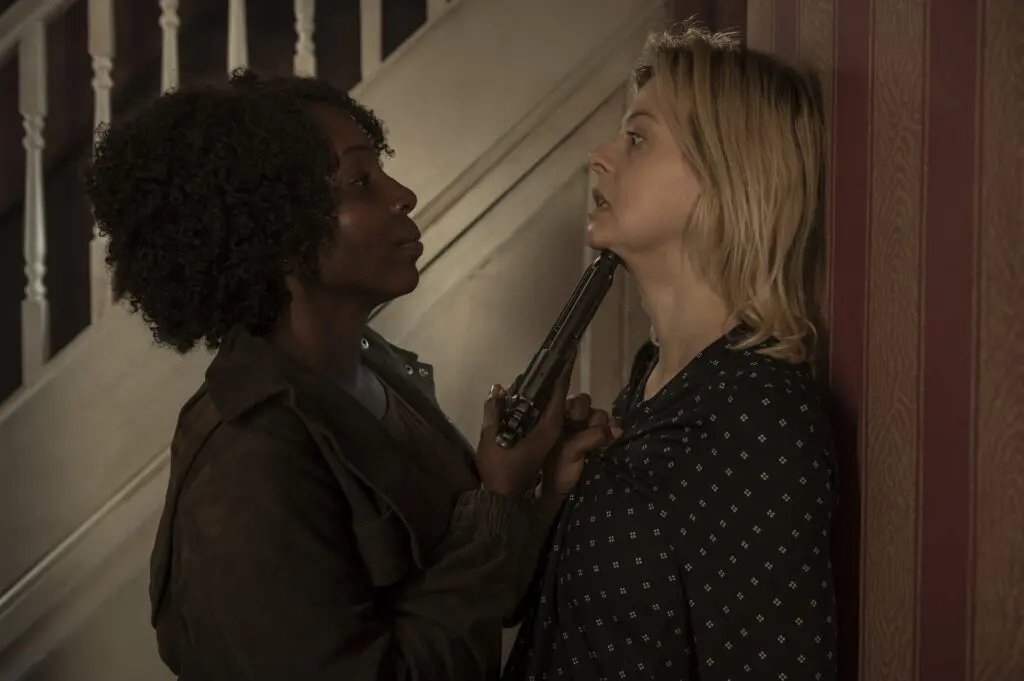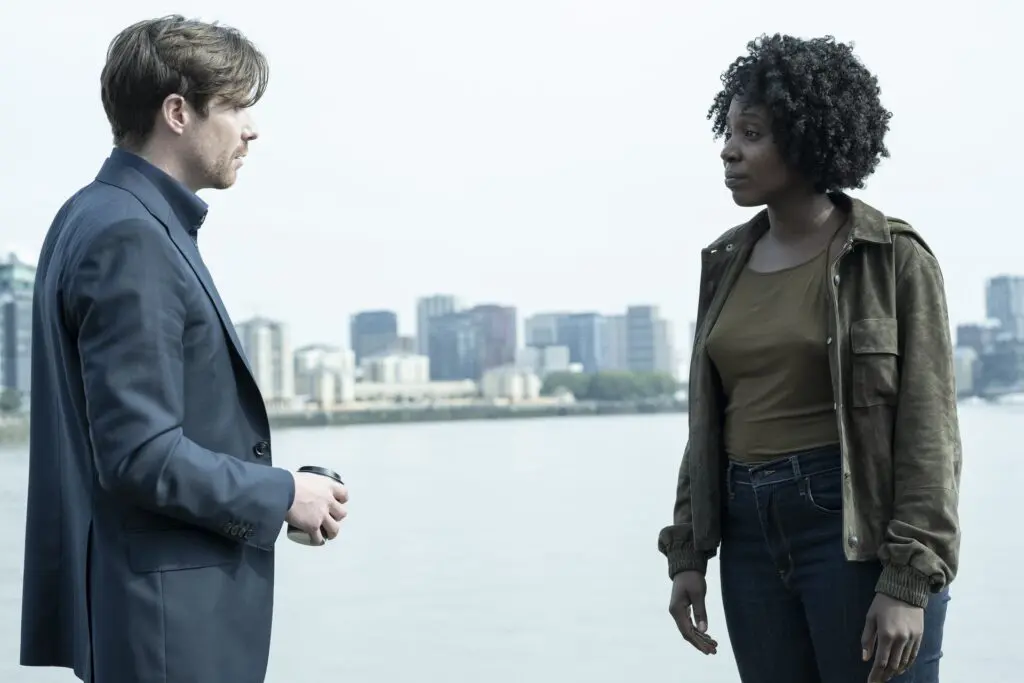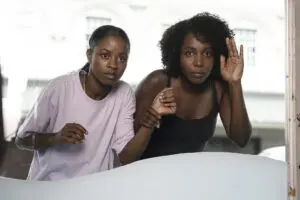Summary
Get Millie Black smartly resists a happy ending. Instead, Episode 5 cracks the case, but raises the question of whether it was worth it.
What constitutes a happy ending in a crime drama? Is it the bad guys getting their comeuppance? A case being satisfyingly solved? The detective at the center being vindicated for whatever off-the-books lengths they went to in order to save the day? Whichever definition you prefer, I don’t think Get Millie Black qualifies. HBO’s excellent series has defied ideas of easy resolution at every turn. Episode 5, “Curtis”, is no different.
In the penultimate episode, Millie had resolved to return to London without the blessing of her superiors in order to locate Romeo and get to the bottom of who was responsible for trafficking him. And this, at least, she achieves. But it comes at a steep cost for everyone around her, including a surviving Holborn, Hibiscus, her put-upon partner, Curtis, whose narration frames the finale, and Millie herself.
Hibiscus, for instance, isn’t in Get Millie Black Episode 5 at all, not at the beginning or the end, save some for vague imaginings of a childhood long gone and a different life well out of reach. Millie physically left her sister behind to pursue Romeo, but in other ways, she left her behind a long time ago. Whether being sent to London as a child was her decision or not, she was gone. And when she returned to Jamaica she was unrecognisable.
Millie’s inability to save Orville as a child or Hibiscus as an adult, and the lingering trauma of her experiences coming of age and building a career in London, are what fuel her obsession with Romeo. She can’t see the forest for the trees. She’s single-mindedly obsessed with saving this boy at the expense of everything and everyone else. Interestingly, it’s Curtis who goes through the arc she should. When Janet’s body turns up, his apartment is tossed, his relationship with Daniel is exposed, and his career is jeopardized. He realizes that the only thing that matters to him is waiting for him at home at around the same time that Millie realizes she has nobody to go home to – even the house itself is cursed, and at the end of Get Millie Black, she sells it and everything inside it.
But it’s too late. Hibiscus remains gone, and bulldozing the property where so much of her trauma occurred can’t heal it retroactively. It’s an empty, placatory gesture. It’s Millie trying to make herself feel better about her choices. In much the same way, she watches Romeo live a normal life back home from a distance, reassured that, if nothing else, she at least got one thing right.

Tamara Lawrance and Ambra Adala in Get Millie Black | Image via WarnerMedia
Millie’s search for Romeo in London takes up most of the finale. She calls on the services of her former partner Ameera, once again at great risk to Ameera, and eventually Holborn shows up to form an unlikely partnership with her. I’m not sure what the show expects us to feel about Holborn. The implication is that relatively innocuous greed led him to work with the bad guys in the first place and then he was strong-armed into playing ball. It’s like we’re supposed to forget that he executed a young girl just an episode ago, even if – this in a bit of a whisper – she kind of deserved it.
But Holborn doesn’t stay the course. He’s eventually killed by the real villain, Natalie Halliday, the older sister of Nico Danvers. The crime plot has the feeling of a snowball gathering size and momentum; the pivot to trafficking children caused so many murders and cover-ups that it was nearly impossible for the scheme to be contained. Natalie was desperate to protect her brother in the resultant chaos, and in that, at least, Millie can relate.
The sibling relationship is no accident. It’s made explicit in a stand-off between Millie and Natalie where the former reveals she understands her on some level; she acknowledges that they both deserved better from the foster system than what they got. She’s being truthful, but it’s no excuse, which is probably why Natalie shoots her.
We don’t find out what happened to Natalie, but it’s a safe bet to assume she was eventually caught. But it’s also a safe bet to assume she’s far from the end of Lindo and their operations. This is what Curtis’s narration is a reminder of. The many-headed hydra of crime and corruption is undefeatable – cut off one head, and two more take its place. With that in mind, was everything that Millie gave up worth it?




